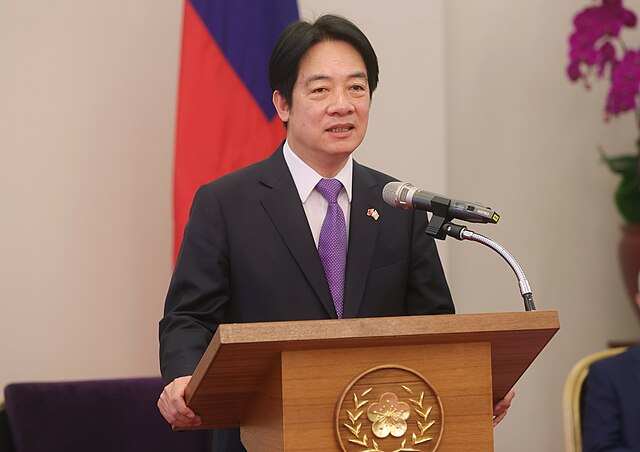Politics
JUST IN: Taiwan Seeks To Remove Tariffs On US, Increase Investment

Taiwan’s President Lai Ching-te on Sunday offered to enact a zero tariffs approach to trade with the United States, becoming the third major economy to do so after President Donald Trump announced sweeping tariffs on imports from dozens of countries on April 2.
Taiwan — a top 20 economy in terms of GDP and purchasing power according to Global Finance Magazine — is pledging to remove existing trade barriers rather than responding with new tariffs. The island nation is also pledging to rapidly increase its investment in the United States.
While speaking from the Rose Garden earlier this week, Trump enacted tariffs of varying percentages on dozens of trading partners. This includes Taiwan, which faces a 32 percent tariff on its products and runs a trade surplus with the United States.
The tariffs do not apply to semiconductors, however, providing relief for a major Taiwanese export. As of 2025, Taiwan accounts for 60 percent of the world’s semiconductor manufacturing, and nearly 90 percent for the most advanced ones.
After meeting with a range of small and medium-sized companies at his residence over the weekend, President Lai acknowledged that Taiwan’s reliance on trade could lead to short-term economic challenges. He expressed confidence that the effects could be minimized, however, before outlining his government’s approach to trade negotiations with the Trump Administration.
“Tariff negotiations can start with ‘zero tariffs’ between Taiwan and the United States, with reference to the U.S.-Canada-Mexico free trade agreement,” Lai said.

Taiwan President Lai Ching-te celebrates the 113th National Day at the Center of the Republic of China
Taiwan is not planning any retaliatory tariffs, and has pledged to continue its investments in the United States so long as they remain in the nation’s interests. Taiwanese firm TSMC, the world’s largest contract chipmaker, last month announced an additional $100 billion investment in the U.S.
“In the future, in addition to TSMC’s increased investment, other industries, such as electronics, information and communications, petrochemicals, and natural gas will be able to increase investment in the U.S. and deepen Taiwan-U.S. industrial cooperation,” Lai said.
Taiwan’s cabinet is currently working to determine what large-scale agricultural, industrial and energy purchases to make from the United States, according to a report from Reuters. In addition, the nation’s defense ministry has already announced plans to increase its investment in the U.S.
“All purchases will be actively pursued,” Lai said. Taiwan will also work to resolve non-tariff trade barriers that have existed for many years in order to make accelerate trade negotiations, he added.
The announcement comes just days after Vietnam’s government announced that it is also in the process of dropping all tariffs and trade barriers currently imposed on the United States. Negotiations followed what Trump described as a “very productive call” with To Lam, the General Secretary of the Communist Party of Vietnam. In a post on Truth Social, Trump said Lam “told me that Vietnam wants to cut their Tariffs down to ZERO if they are able to make an agreement with the U.S.”

